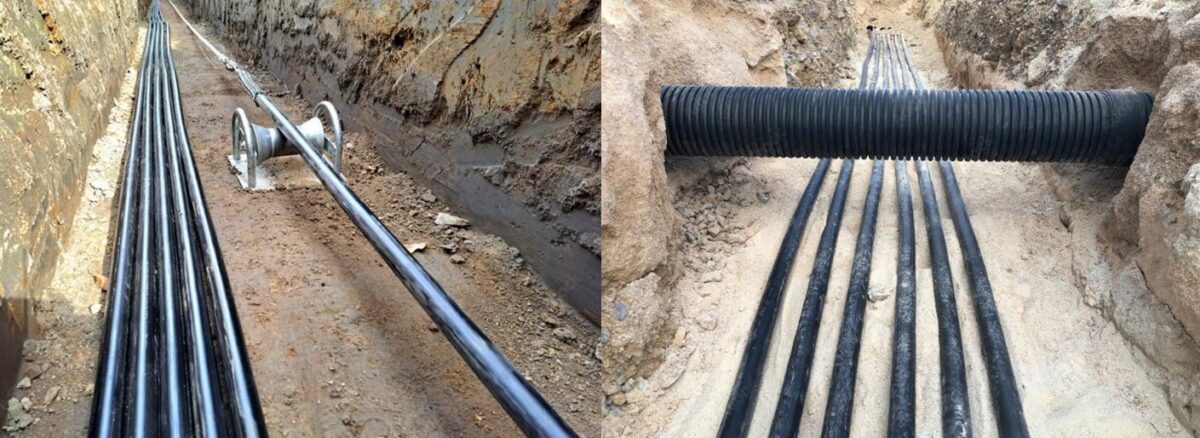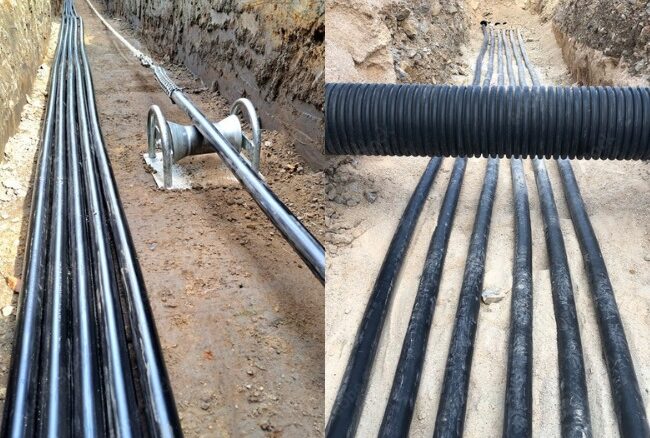- 11 January, 2024
- Beatriz Tudela Segura
- Comment: 0
- News

THERMAL STUDIES OF PIPELINES

In the current context of transitioning from energy sources derived from the combustion of coal or oil to renewable energy, the importance of solar production has heightened due to its capacity to offer key solutions that meet the growing energy demands cleanly and efficiently over time. In this scenario, MEP-Projects stands out as a specialized technical office playing a crucial role in the comprehensive development of related projects, addressing everything from the initial phases to effective on-site implementation. Their proactive approach and commitment to technological innovation go beyond simple solar module installation, delving into the optimization and efficiency of each component of the system, emphasizing the importance of thermal study of electrical conduits.
In the capacity of a specialized technical engineer in solar energy production and electrical transmission, the proposal is to enhance the visibility of thermal conduit studies, highlighting their relevance in the overall system optimization. This analysis goes beyond a simple check of cable ampacity. Delving into the complexity of heat conduction, it evaluates how fluctuations in energy generation and demand impact the performance and longevity of electrical components. In the dynamic environment of a photovoltaic plant, where generation is constant but demand can vary, proper thermal management becomes a critical element.
In this complex thermal calculation process, where MEP-Projects excels with the help of specialized software, various factors come into play in the thermal conduit study. These factors affect the ability of electrical trenches to dissipate the heat generated by electrical conductors. Here are some of the most relevant factors:
- The thermal conductivity of the soil.
- The geometry of the trench, both in terms of width and installation depth.
- The filling material used. Implementations of electrical conduits in arid or desert areas entail a significant increase in the thermal resistivity of the ground. To overcome this drawback, it is often proposed to fill these trenches with filler material with better thermal resistivity, thus facilitating thermal transfer from the wiring to the ground.
- The electrical current load.
- Ambient climatic conditions.
As an example, to illustrate a recent case study in a 142.42 MWp photovoltaic plant in Madrid, Spain, the importance of this process is highlighted. Faced with a 10- to 12-week delivery time for 500 mm² aluminum low-voltage cables, the thermal calculation not only confirmed the cable ampacity but also highlighted the opportunity to optimize the section to 400 mm². Conducting the study non-permanently, i.e., in transient conditions over a day, month, or even a year of production.
This decision was not solely based on thermal criteria but also took into account logistical and economic considerations. The 400 mm² section is more common among major manufacturers, such as Prysmian Group or Topcable, facilitating acquisition and reducing delivery time to 3 or 4 weeks. This optimization by MEP-Projects not only maintained the system’s efficiency and safety but also had a positive impact on project profitability and schedule.
As illustrated in the above case of the photovoltaic plant in Madrid, MEP-Projects demonstrates a profound understanding of the importance of thermal management in electricity transmission.
In the dynamic field of Engineering, where innovation and efficiency are imperatives, MEP-Projects stands out as a strategic partner, implementing advanced engineering solutions to ensure cutting-edge projects. Additionally, our commitment to comprehensive design and operational efficiency is reflected in every phase of the project itself. If you are interested in thermal studies of electrical conduits or wish to explore any of the topics discussed here, we invite you to start the conversation with us. We are currently dedicated to sharing our specialized knowledge and developing tailored solutions that accurately address your unique challenges and ambitions.
Made by Fco. Javier Marín (EICA Design Engineer)

